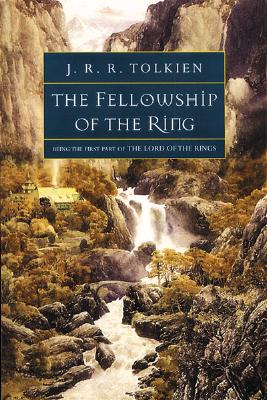One of the most popular genres these days is fantasy, as indicated by the massive success of the Harry Potter and Twilight novels and movies. Academic Richard Mathews says that fantasy "is a type of fiction that evokes wonder, mystery, or magic--a sense of possibility beyond the ordinary, material, rationally predictable world in which we live. . . . [It is] a fiction that elicits wonder through elements of the supernatural or impossible. It consciously breaks free from mundane reality." in his Fantasy: The Liberation of Imagination.
 | Of course, J.R.R. Tolkien is largely credited with bringing fantasy to the masses with his very popular Lord of the Rings books, starting with The Hobbit in 1937. (I'm looking forward to the new movie, how about you?) |
Academic Farah Mendlesohn outlines a classification system which is about "the way in which a text becomes fantasy, or alternatively, the way the fantastic enters the text and the reader's relationship to this." in her Rhetorics of Fantasy. Very briefly, the four major types of fantasy are:
- Portal-Quest Fantasy in which a character leaves his/her familiar surroundings and passes through a portal into an unknown (usually magical) place. A classic example would be an epic fantasy like The Lord of the Rings
- Immersive Fantasy in which the reader and pov character take for granted the fantastic elements with which they are surrounded. Science fiction would be a kind of immersive fantasy.
- Intrusive Fantasy in which the fantastic intrudes on the characters and the reader, with a sense of threat, of waiting, and of repulsion. Much of horror would be considered intrusive fantasy.
- Liminal Fantasy, or the fantasy of the possible, in which the fantasy elements are uncertain or hesitant. Magical Realism is an example of this.
Interestingly, fantasy began way back in the eighteenth century and "took shape through a dialectic with this new literature of realism. The ...modern authors who crafted fantasy as an alternative literary form ...understood that they could create a complex and appealing counterpoint to popular fiction...by imbuing their writing with ancient human impulses toward myth..." as Mathews says.
So, there you have it, readers in the twenty-first century enjoy some of the same things as those in the eighteenth century! The more things change, the more they stay the same. ;)

Thanks again for another enlightening post.
ReplyDelete